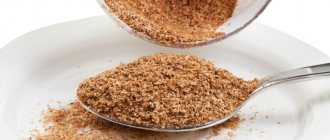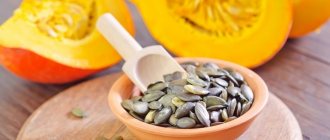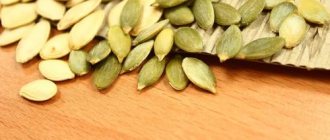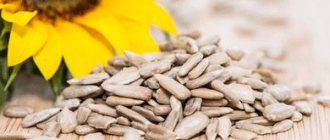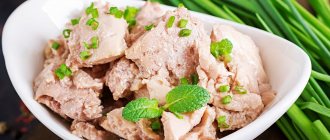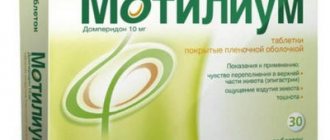Their benefits for the body are beyond doubt. Seeds that seem ordinary at first glance consist of glycerides, carotenoids, and tannins. They contain a lot of phytin and salicylic acid. With reasonable consumption, the nervous system returns to normal, and heart function stabilizes. Hair becomes shiny and beautiful, and skin healthy.
Despite the abundance of healing properties, abuse can negatively affect a healthy person. It is worth finding out in advance whether you can eat seeds with gastritis in order to avoid the consequences. It contains a lot of fats that make it difficult to digest food.
Gastritis: why does it occur?
Gastritis is usually called an inflammatory process that affects the stomach. It can have an acute as well as a chronic form. When the disease worsens, a person is bothered by nagging or severe pain, nausea, and an unpleasant aftertaste. In the chronic stage, patients are bothered by heaviness, belching and heartburn.
People who have been diagnosed with this condition complain of fatigue and irritability. Vital tone gradually decreases. Such patients are increasingly experiencing chills and drowsiness, especially after eating. In at least 50% of cases, the cause of the disease is Helicobacter pylori. However, there are dozens of factors that provoke the development of the disease. Let's list the most common ones:
- Strong feelings and stress.
- Anxiety, nervousness.
- Eating unhealthy foods.
- Too hot or, conversely, cold lunches.
- Physical inactivity. If a person moves little, this can also provoke gastritis.
- Severe poisoning.
- Failure to comply with basic hygiene rules.
- Bad habits.
- Predisposition to gastrointestinal diseases.
- Lack of vitamins.
Any of the above reasons entails serious problems. Irritated mucous membranes force a person to follow a diet - often quite strict. Depending on the amount of acid produced in the stomach, the diet differs. This is why it is so important to know whether you can chew seeds with gastritis and how they affect digestion.
Antistress from a bag
What is the reason for such ardent love? Psychologists explain this phenomenon this way: peeling seeds has a calming effect. In a stressful state, the monotonous chewing of shells plunges a person into a state akin to meditation - he relaxes and stops thinking about problems as something terrible. A handful of grains helps you calm down and regain control over your emotions. And since it is known that modern people face stress at every step, it becomes clear why the popularity of this product is so great.
Sunflower seeds. How are they useful?
In our culture, these seeds are the most common. Villagers and townspeople love to click a sunflower on a bench while watching a TV series. The composition includes dozens of essential microelements. Let's list some of them:
- Vitamin E. It is enough to eat 70 grams of the product to replenish the supply of vitamin necessary for normal hair growth.
- Group B.
- Phosphorus, fiber, tannins.
- Iron, magnesium.
- Fitin.
- Copper, potassium.
- Various fats and proteins, carotenoids.
The elements contained in sunflower significantly improve the synthesis of hormones. They are involved in protein metabolism and help overcome depression. German healers used sunflower seeds to treat malaria and urticaria.
Contraindications
A favorite treat can become dangerous in some chronic diseases. Among them:
- Colitis, gastritis, stomach ulcer. Disease symptoms are worsened by fiber, which takes a long time to digest.
- Kidney disease and gout. The seeds contain a lot of cadmium and oxalates, which increase salt deposition.
- Allergies. Sunflower seeds cause runny nose, shortness of breath and anaphylactic shock in people with asthma, intolerance to soy and sunflower oil.
- Vegetative-vascular dystonia, Parkinson's disease, liver diseases. Manganese, which the seeds are rich in, is harmful for these diseases.
Pumpkin seeds. Should you eat regularly?
The beneficial properties that pumpkin seeds have for gastritis are truly impressive. Residents of Eastern Europe use them regularly. For example, fried, boiled. The delicacy is added to a variety of dishes. Of course, a certain part of the vitamins is lost after heat treatment. However, the composition of microelements remains unchanged. Pumpkin seeds have long been used in the treatment of prostatitis. This is a proven and very effective remedy for worms.
So what beneficial substances do pumpkin seeds contain?
- Phosphorus, magnesium, copper.
- Zinc, organic acids.
- Vitamins.
- Protein and various amino acids. Some of them are rare and not found in other foods.
- Provitamin A, also known as carotene.
- Essential oils.
Eat pumpkin seeds regularly to strengthen your immune system and significantly improve your heart function. Your digestion will normalize, and your skin condition will also return to normal. The thyroid gland will begin to function smoothly, and cholesterol levels will noticeably decrease.
Why are seeds harmful for gastritis?
Despite the enormous benefits that these products bring to the body, ordinary seeds for gastritis with high acidity can cause harm.
- Due to its hardness, the product injures the walls. As you remember, when the stomach is inflamed, it needs soft, boiled, steamed food.
- The seeds increase acidity, which means they cause heartburn. In case of hyperacid form of the disease, they should be eaten with caution.
- Store-bought products are often treated with carcinogens and benzopyrene. Unfortunately, these are very dangerous substances that can lead to gene mutations and cancer.
- Anyone who drinks pumpkin seeds with water when suffering from erosive gastritis runs the risk of developing diarrhea.
- Fats cause poor digestion. They create additional stress.
The effect of different types of seeds on the body
Despite the fact that the composition of plant seeds differs slightly, each species has its own special effect on the body. For example, flax-based mixtures accelerate the regeneration of mucosal epithelium; and pumpkin seed is used against helminths. Calorie content differs slightly - from 560 to 634 kcal per 100 g.
Fried sunflowers
Nutritional value – 640 kcal per 100 g. With gentle heat treatment, the mineral composition is retained, but the vitamins are partially decomposed. Restore intestinal metabolism, increase vascular tone, promote the formation of muscle tissue. They have an antioxidant effect and help the body cleanse itself of toxins.
Roasted sunflower seeds retain their mineral composition.
Raw sunflowers
Calorie content - 578 kcal per 100 g. Effectively cleanses the intestines and stabilizes bowel movements.
But these are not the only useful properties:
- Reduce the level of bad cholesterol and stimulate the production of hemoglobin.
- Improves the condition of hair and nails, skin quality.
- Due to the high amount of calcium in the composition, the healing of fractures is accelerated; potassium - normalizes heart contractions.
Sunflower seeds help to quickly suppress the feeling of hunger, so they are used for snacks when losing weight.
pumpkin seed
Calorie content – 559 kcal per 100 g. The medicinal properties of the product are used by official medicine. Pumpkin seeds are used to treat helminthic infestations, prostatitis, inflammatory diseases of the kidneys and bladder, and constipation. They contain a lot of omega-3 and omega-6 fatty acids, due to which, with regular use, you can maintain youth and beauty, lower blood pressure, and reduce the frequency of hypertensive crises. Roasted pumpkin seeds are recommended for pregnant women with toxicosis in the early stages.
Pumpkin seed is used to treat constipation.
Flax-seed
Calorie content - 534 kcal per 100 g. In folk medicine, flax is introduced into the therapeutic regimen for gastritis, regardless of the reasons that caused them, and peptic ulcer disease. Decoctions and jelly are prepared from the seeds, forming a film on the surface of the mucous membrane, and they are added to salads to normalize intestinal metabolism. When consumed whole, they have a pronounced laxative effect.
Zucchini seed
Calorie content - 556 kcal per 100 g. Properties are similar to pumpkin seeds, but less pronounced.
For constipation, they are eaten with the peel because it is soft. They are also used:
- for helminths in children;
- to strengthen blood vessels and normalize heart rate;
- to stimulate the synthesis of digestive enzymes.
In addition, they have a mild diuretic and choleretic effect.
Seeds during exacerbation
During an exacerbation, the inflammation is so severe that even neutral food can cause even greater irritation. The diet of patients is limited to porridge, pureed meat, and steamed cutlets. When the peak of the exacerbation has subsided, you can eat boiled or steamed dishes.
When asked whether it is possible to eat fried seeds during gastritis in the acute stage, the answer is always negative. Due to the abundance of fats, food digestion is complicated. The result is a worsening of the situation, pain. It is especially dangerous to eat seeds for those who suffer from gastritis with high acidity. The juice is concentrated in excess, and eating a handful of seeds is like adding fuel to the fire. The symptoms will only get worse.
Nutcrackers risk damaging teeth
Constant use of certain areas of the incisors leads to thinning and even splitting of the enamel. You can “crack” seeds for years without much harm to it, and one day you will encounter an overly strong specimen that will make a hole in the enamel that is visible to the naked eye. But more often, tooth damage is the result of many years of grinding down the enamel, which simply does not have time to recover.
What happens next? There are two options.
- The “Nutcracker” goes to the dentist, who fixes the problem and convinces the patient of the need to give up the bad habit or learn to “disassemble” sunflower seeds with his hands (by the way, stimulation of the fingertips rich in nerve endings has never harmed anyone).
- He continues to chew “for his own pleasure”, changing the localization of the “working” areas on his teeth. There are “craftsmen” who crack the shell with their molars and, manipulating their tongue, separate the kernels from the husk. The latter is evacuated, that is, spat out. The condition of the oral cavity after such a meal leaves much to be desired, but abrasions on the mucous membrane and chips of the enamel do not bother the “seed eaters” until significant harm is caused to their health. After this, it is time for the first option.
You should not put off visiting a doctor, because a violation of the integrity of the enamel is:
- ugly smile;
- painful reaction to frosty air, cold and hot food;
- if the pulp chamber is damaged, pain occurs that interferes with chewing food properly;
- when the nerve is exposed - toothache even at rest;
- possible source of infection;
- the likelihood of tooth decay and loss.
Peeling sunflower seeds with your teeth is dangerous because small chips and cracks that do not affect the dentin do not cause noticeable pain. Because of this, the patient delays his visit to the dentist and may experience unpleasant complications. And to eliminate them, additional means are needed - both therapeutic and financial. You need to remember this when planning to watch your favorite series with the treasured little bag in your hands.
Seeds: possible, if you are careful
During the period of exacerbation, the product is clearly prohibited. But at the remission stage, doctors are no longer so categorical. The final decision on whether seeds are allowed for chronic gastritis is made by a specialist.
For our part, we want to share a few secrets to reduce the harmful effects of sunflower seeds, pumpkin seeds, and flax:
- Always eat seeds as part of other dishes.
- A great option is to crush the seeds and then sprinkle on low-fat cottage cheese.
- Never eat them on an empty stomach when your stomach is still empty.
- It is recommended to consume sunflower seeds for gastritis after oatmeal jelly. Thanks to its viscous structure, it perfectly envelops and minimizes irritation.
In order for the product to bring maximum benefit, it is important to use it correctly. The seeds are always eaten raw, the daily intake does not exceed 50 grams. Regularity of use: once a week.
After seeds – rinse and clean
Another aspect of eating sunflower grains that affects the condition of the oral cavity is the particles of kernels and husks remaining after eating them. The former are an excellent environment for harmful microorganisms, while the latter, with their sharp edges, injure everything they come into contact with. To minimize the harm of these factors, after the “meal” you need to brush your teeth, after rinsing your mouth generously with water. Otherwise, pieces of shell will become a traumatic abrasive during cleaning.
It has long been known that food can be useful and harmful - it all depends on its quality, portions and the presence of a culture of consumption. This fully applies to sunflower kernels.
How to eat seeds of other plants?
Unlike pumpkin seeds, medicinal plant seeds are widely used in medicine. Gastroenterologists prescribe them as an addition to basic therapy. True, they are not cracked, but medicinal decoctions are prepared. The only thing you can add to food is flax seeds for gastritis. They have no smell at all, are practically tasteless, but are incredibly useful. Judge for yourself:
- Unique enzymes.
- Fatty, organic acids.
- Protein substances and carbohydrates.
You can also fill them with hot water. As a result of this simple procedure, mucus is formed. It envelops the gastric walls, improves the general condition of the mucous membrane, and relieves pain. Flax seeds contain a special substance – the glucoside linamarin. It activates secretory activity and stabilizes motor skills.
During an exacerbation period, flax is used as follows:
- Two teaspoons are poured with boiling water - 1.5 cups.
- The flax is cooked for literally ten minutes, then infused for another 15 minutes.
- When the broth has brewed well, it is filtered.
- Recommendations for use: 1/2 glass 20 minutes before meals.
Plantain seeds have amazing properties. They contain a lot of mucus, fatty oil and saponins, oleanolic acid. The infusion provides excellent pain relief for all forms of gastritis and has antiseptic and anti-inflammatory properties. By the way, many seeds are included in herbal preparations that are sold in pharmacies.
Zucchini
The composition and properties of pumpkin and squash seeds are similar in many ways, but the latter are less in demand. They improve liver function and enhance immunity. Santonin is a substance that makes zucchini seeds an excellent anthelmintic.
If gastritis is caused by the presence of helminths in the body, then you need to take a decoction prepared from a handful of seeds boiled in a glass of water for at least 20 minutes. You need to drink half a glass 2 times a day until the parasites completely disappear.
